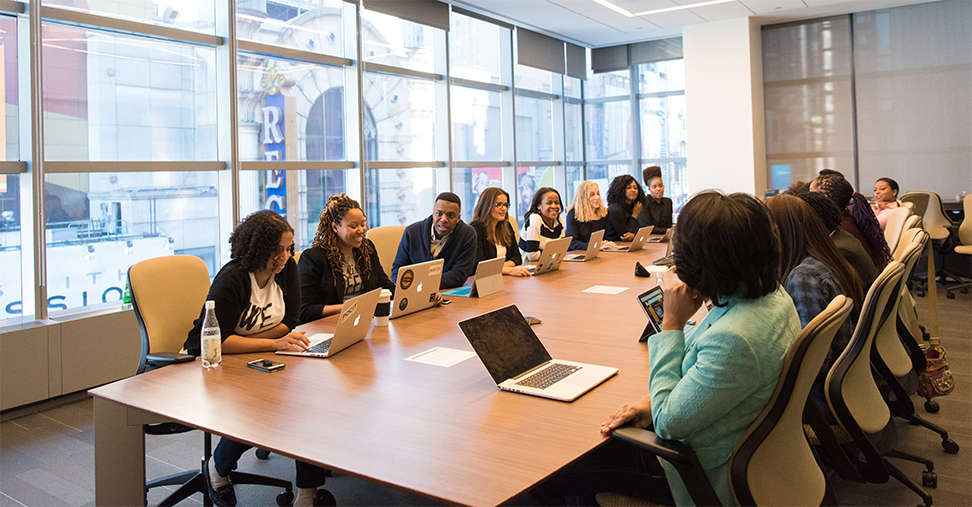‘Trust is everything in a workplace’

Published May 21, 2020
In our latest FIT @ Work webinar, peer coach Joe Tlustos was joined by Romicha Cooper, Human Resources Director of the Denver Metro Chamber of Commerce. Below are a few of the many areas they discussed related to addiction, trust and communication within the workplace.
Joe: Could you give us some background on the Denver Metro Chamber’s role with Face It TOGETHER and why you got involved?
Romicha: Let me say first, what an honor to have a benefit that we can provide to employees that deals with addiction. We realize at the Chamber that no employee or no person is exempt from the trials and tribulations that life can offer. We recognize that a lot of people who suffer from an addiction, in whatever form it shows up, they’re working individuals. They come to work every day. And so why not have a benefit that says, ‘You know what, we care about you, we care about your families, we care about what you are experiencing, and here is a tool that you can use to deal with your stressors.’
Joe: How important is it to have trust within a workplace?
Romicha: In any relationship, trust is an essential piece. Trust allows you operate in a manner that lets you put your guard down, trust allows you to feel like someone has your best interest at heart. Trust is so essential. If you have trust in your workplace, your employees are going to feel supported. They’re going to feel that you’re out for their better good. To be able to go to work and feel that level of support, it takes so many layers and burdens and stressors off of you right away.
I think when you remove that trust, it shows up in different forms. It shows up as isolation, second-guessing, looking over your shoulder, double checking the work. So I think it’s very important to build that level of trust with your employees. It allows your employees to be more productive, to feel like they can ask questions, to feel like it’s ok if they get something wrong, because we know their intent and we know they didn’t mean to. It allows us to operate in a way that should be natural.
Joe: Sometimes we think of Human Resources (HR) as a very rigid department, because for a lot of people, we only show up when there’s a problem. Could you maybe talk about that a little bit? What’s your HR philosophy?
Romicha: As an HR professional, we have to provide that balance. Sometimes we’re put in a difficult spot because we do have to provide a balance between policy and procedures, being consistent, best practices, and then there’s some gray areas that you have to manage through. And sometimes employees don’t understand that we have to operate within those boundaries.
Speaking personally, I’ve seen and lived through some different experiences that have me take a step back when I’m faced with an employee who’s suffering from something or needing some guidance. Because of my experiences, I can look at what they’re going through and I get it. I can say, ‘I absolutely understand what you’re challenged with right now.’ So I think as HR professionals, we have to manage in that gray. You are not able to always be the stickler. Building that trust with your employees from an HR standpoint is very important too. I want people to come to my office just to chat. I want them to feel like they can sit down and talk about their weekend. You don’t always need to come into my office when there’s a breakdown or a problem.
We have to be able follow those procedures, but also provide advice that may help someone. If I can save you, if I can give you something that will alleviate some pain point for you in your life, I want to be able to provide that.
